
Monastir: The Jewel of the Tunisian Coastline
Monastir, a coastal city in Tunisia, is a blend of history, culture, and stunning Mediterranean views. Known for its beautiful beaches and historic sites, Monastir is a perfect destination for those looking to explore the rich tapestry of Tunisian heritage while enjoying the sun and sea. Start your journey with a visit to the Ribat of Monastir, a historic fortress that dates back to the 8th century. This well-preserved structure offers a glimpse into the city's past and provides panoramic views of the coastline. The Ribat also serves as a cultural hub, often hosting exhibitions and events. Take a stroll through the Medina, the old town of Monastir, where you can wander through narrow streets lined with shops selling traditional crafts, spices, and souvenirs. The vibrant atmosphere and friendly locals make it a delightful place to explore. For a touch of serenity, visit the Bourguiba Mausoleum, a grand monument dedicated to Tunisia's first President, Habib Bourguiba. The mausoleum is an architectural marvel, with its golden dome and intricate details. It's also a great spot for reflection and admiration of Tunisian craftsmanship. Don't miss the local cuisine, which is a delicious mix of Mediterranean and North African flavors. Try dishes like brik, a crispy pastry filled with egg and tuna, or couscous served with fresh seafood. There are plenty of restaurants and cafes along the coast where you can enjoy a meal with a view. Monastir is not just about history and culture; it also offers modern amenities and activities. From water sports to golf courses, there's something for everyone. The city's marina is a great place to unwind, with its luxury yachts and chic cafes.
Local tips in Monastir
- Visit the Ribat early in the morning to avoid crowds and enjoy the best views.
- Wear comfortable shoes for walking through the Medina's narrow and often uneven streets.
- Try to learn a few basic phrases in Arabic or French to make interactions with locals smoother.
- Check the local calendar for festivals or events happening during your visit.
- Carry some cash, as many small shops and cafes might not accept credit cards.
- Don't forget to pack sunscreen and a hat, especially if you plan to spend time on the beach.
Monastir: The Jewel of the Tunisian Coastline
Monastir, a coastal city in Tunisia, is a blend of history, culture, and stunning Mediterranean views. Known for its beautiful beaches and historic sites, Monastir is a perfect destination for those looking to explore the rich tapestry of Tunisian heritage while enjoying the sun and sea. Start your journey with a visit to the Ribat of Monastir, a historic fortress that dates back to the 8th century. This well-preserved structure offers a glimpse into the city's past and provides panoramic views of the coastline. The Ribat also serves as a cultural hub, often hosting exhibitions and events. Take a stroll through the Medina, the old town of Monastir, where you can wander through narrow streets lined with shops selling traditional crafts, spices, and souvenirs. The vibrant atmosphere and friendly locals make it a delightful place to explore. For a touch of serenity, visit the Bourguiba Mausoleum, a grand monument dedicated to Tunisia's first President, Habib Bourguiba. The mausoleum is an architectural marvel, with its golden dome and intricate details. It's also a great spot for reflection and admiration of Tunisian craftsmanship. Don't miss the local cuisine, which is a delicious mix of Mediterranean and North African flavors. Try dishes like brik, a crispy pastry filled with egg and tuna, or couscous served with fresh seafood. There are plenty of restaurants and cafes along the coast where you can enjoy a meal with a view. Monastir is not just about history and culture; it also offers modern amenities and activities. From water sports to golf courses, there's something for everyone. The city's marina is a great place to unwind, with its luxury yachts and chic cafes.
When is the best time to go to Monastir?
Iconic landmarks you can’t miss
Ribat
Explore the Ribat of Monastir, a stunning historical landmark that offers a glimpse into Tunisia's rich heritage and breathtaking coastal views.
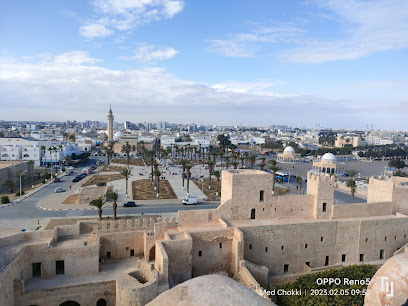
Mausoleum of Habib Bourguiba
Explore the Mausoleum of Habib Bourguiba in Monastir, a stunning tribute to Tunisia's first president, showcasing rich history and breathtaking architecture.
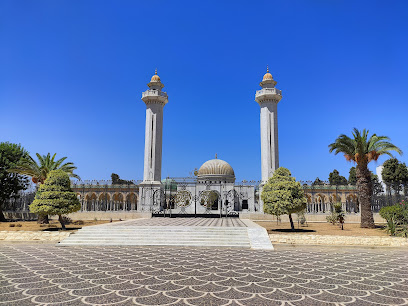
Bourguiba Mosque
Explore the architectural marvel of Bourguiba Mosque in Monastir, a symbol of Tunisia's rich cultural and spiritual heritage.
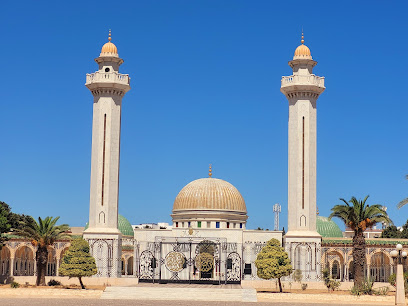
Marina Cap Monastir
Discover the vibrant Marina Cap Monastir, where culinary delights, scenic views, and cultural experiences await every traveler along Tunisia's stunning coast.
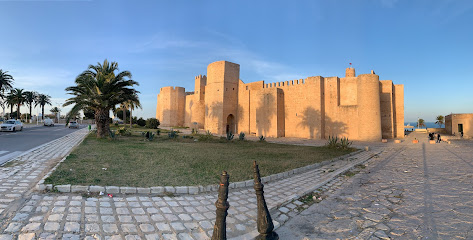
Presidential Palace of Bourguiba
Explore the grandeur of the Presidential Palace of Bourguiba, a historical gem in Monastir showcasing the legacy of Tunisia's first president.
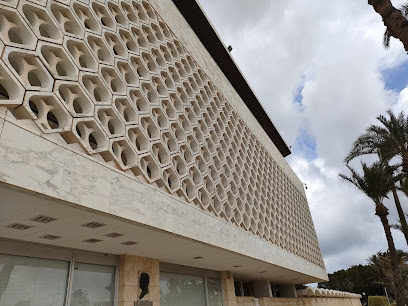
Spring Land/ Adem Park
Experience family fun and excitement at Spring Land / Adem Park in Monastir, Tunisia, where adventure and laughter await you in a vibrant amusement park setting.
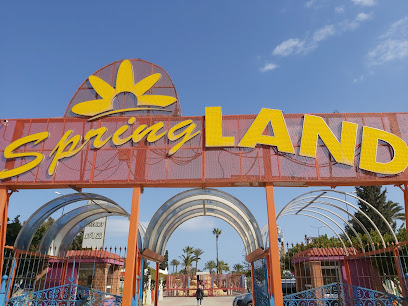
Dar Benti
Experience the charm of Dar Benti in Monastir, where traditional Tunisian hospitality meets comfortable accommodation near stunning beaches and historic sites.
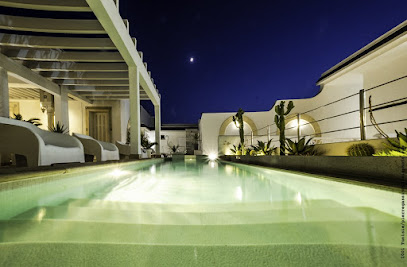
Statue Of The President of The Republic of Tunisia Habib Bourguiba تمثال لرئيس الجمهورية التونسية الحبيب بورقيبة
Explore the Habib Bourguiba Statue in Monastir, a significant symbol of Tunisia's independence and cultural heritage amidst stunning surroundings.
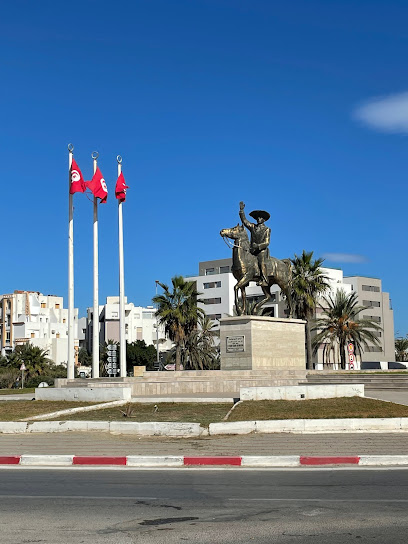
Habib Bourguiba Museum
Explore the Habib Bourguiba Museum in Monastir, a tribute to Tunisia's first president, showcasing artifacts that tell the story of the nation's heritage.
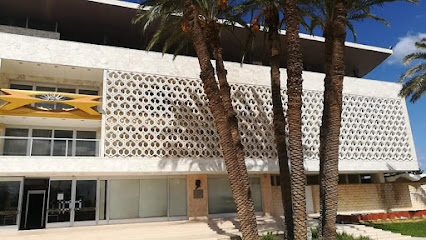
Port
Explore the enchanting Monastir Port - where history meets stunning Mediterranean views and vibrant local culture.
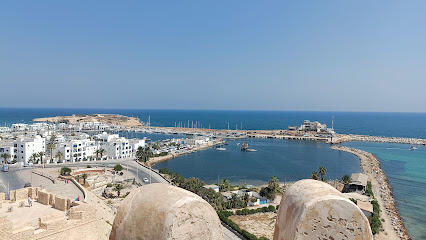
Roman Ruins of Monastir
Discover the captivating Roman Ruins of Monastir, where history and stunning Mediterranean views come together in an unforgettable experience.
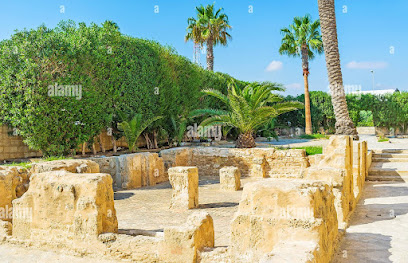
Ribat Sidi Dhouib
Experience the rich history and stunning views at Ribat Sidi Dhouib, a must-visit historical landmark in Monastir, Tunisia.
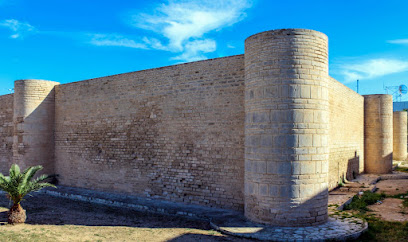
دار الشرع مقر جمعية صيانة مدينة المنستير
Experience the vibrant cultural heritage of Monastir at Dar Al-Sharq, a hub for local traditions and community engagement.
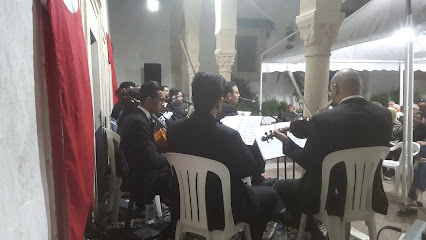
Bab Brikcha
Explore the historical wonders of Bab Brikcha in Monastir, Tunisia, where rich culture meets stunning architectural beauty.
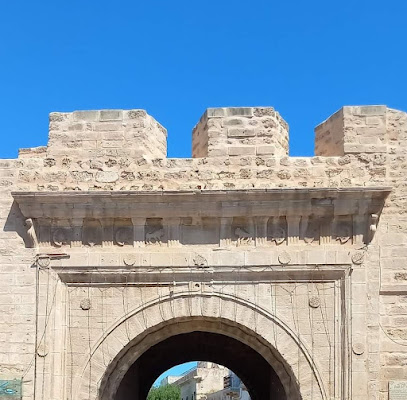
Place 3 Aout
Discover the vibrant Place 3 Aout in Monastir, Tunisia, a lively town square rich in history, culture, and local flair.

Unmissable attractions to see
Ribat of Monastir
Explore the Ribat of Monastir, a stunning historical fortress showcasing Islamic architecture and rich Tunisian heritage along the Mediterranean coast.
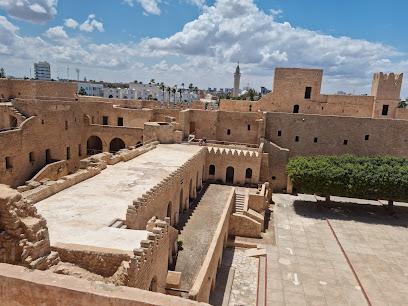
Mausoleum of Habib Bourguiba
Discover the Mausoleum of Habib Bourguiba, a historic site that embodies Tunisia's rich heritage and pays tribute to its first president.
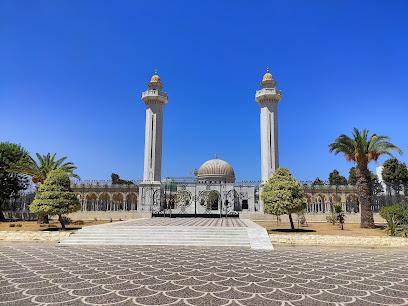
Sousse Archaeological Museum
Uncover the ancient treasures of Tunisia at the Sousse Archaeological Museum, a captivating journey through rich history and culture.
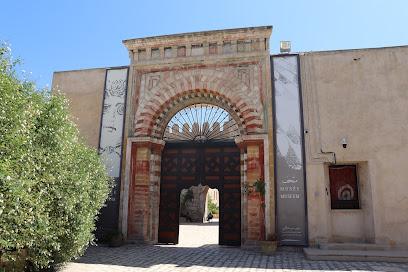
Bourguiba Mosque
Explore the architectural beauty and historical significance of Bourguiba Mosque in Monastir, a cultural gem of Tunisia.
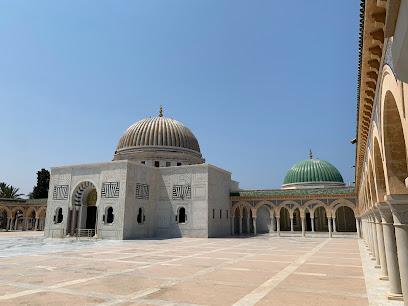
Port El Kantaoui
Explore Port El Kantaoui, a vibrant seaport in Hammam Sousse, known for its stunning marina, beautiful beaches, and rich cultural experiences.
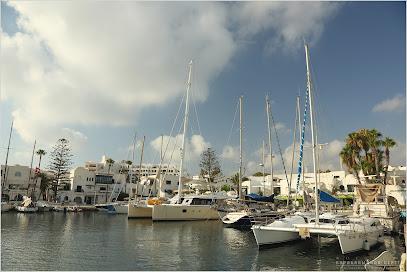
Parc Falaise de Monastir
Explore the stunning coastal beauty and tranquility of Parc Falaise de Monastir, a must-visit natural oasis in Tunisia.
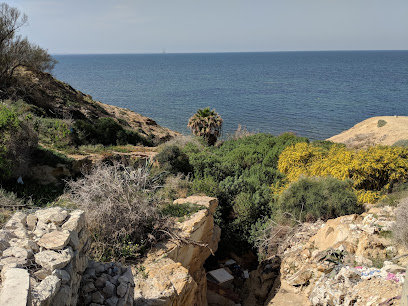
Marina Cap Monastir
Experience the beauty and culture of Marina Cap Monastir, a vibrant marina offering stunning views, delightful eateries, and rich history in Tunisia.
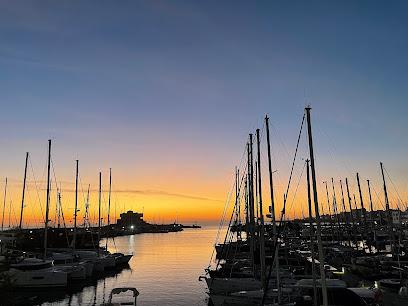
Presidential Palace of Bourguiba
Discover the rich history and vibrant architecture of the Presidential Palace of Bourguiba in Monastir, a must-visit for cultural enthusiasts.
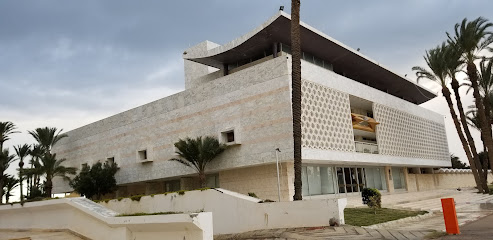
Museum Dar Essid
Explore Museum Dar Essid in Sousse, an art and local history museum showcasing Tunisia's rich cultural heritage through stunning exhibits and artifacts.
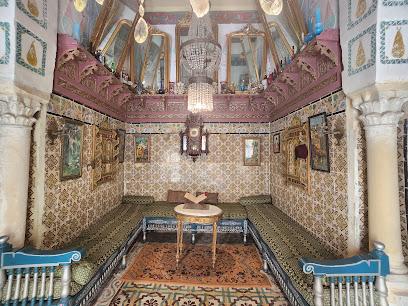
Spring Land/ Adem Park
Experience the thrill of rides and the joy of dining at Spring Land/Adem Park, a premier amusement park in Monastir, Tunisia.
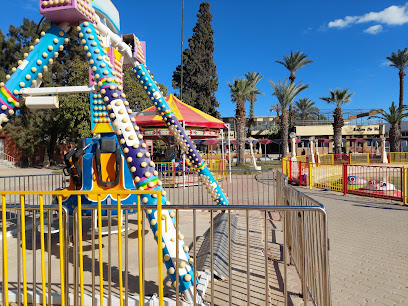
El kantaoui diving center
Experience the thrill of diving at El Kantaoui Diving Center in Hammam Sousse, where the Mediterranean's underwater wonders await your discovery.
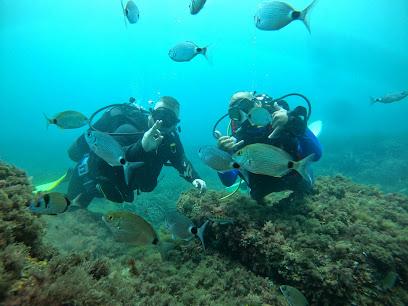
Mahdia Archaeological Museum
Explore the Mahdia Archaeological Museum, where Tunisia's rich history comes alive through fascinating artifacts and captivating exhibits.
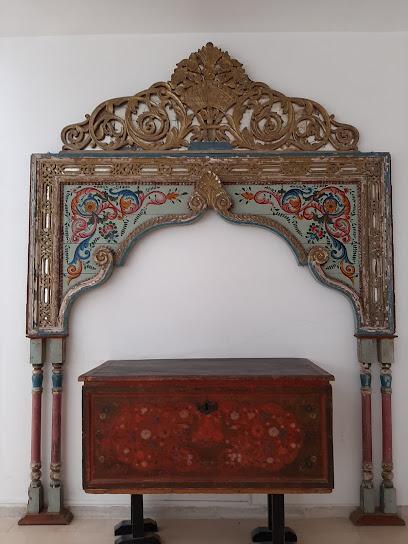
Plongeoir plage karaia de Monastir الميدة
Discover the stunning beauty of Plongeoir Plage Karaia, a captivating beach destination in Monastir, Tunisia, perfect for relaxation and adventure.
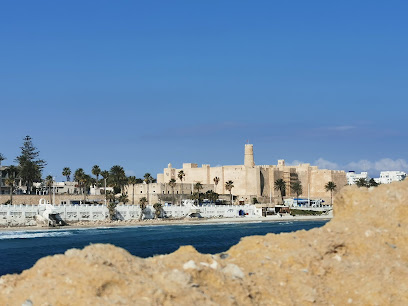
Mahdia beach
Discover the enchanting Mahdia Beach in Hiboun, Tunisia, where sun-soaked shores and vibrant local culture await you.
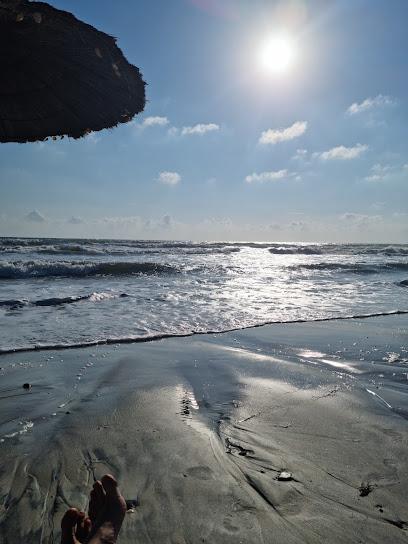
Port
Discover the vibrant atmosphere and rich history at the enchanting Port of Monastir, where sea, culture, and cuisine unite.
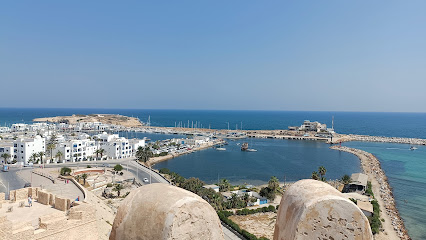
Essential places to dine
Restaurant le Pirate Monastir
Experience exquisite seafood dining at Restaurant le Pirate Monastir - where Tunisian flavors meet fresh catches from the sea.
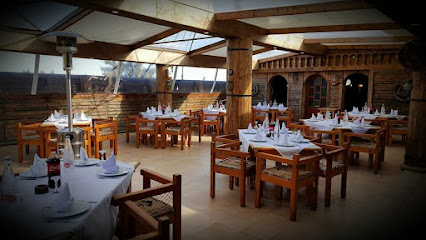
MixMax
Experience the best of fast food at MixMax in Monastir – where local flavors meet international favorites.
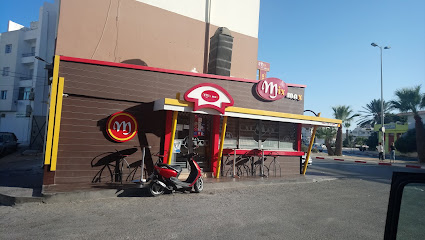
Café et Restaurant El Grotte
Discover the culinary delights of Café et Restaurant El Grotte in Monastir - where tradition meets taste in an enchanting setting.
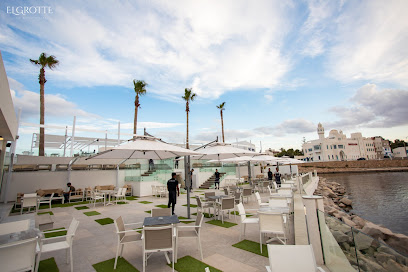
Restaurant Dar Chraka
Experience authentic Tunisian flavors at Restaurant Dar Chraka in Monastir - where every dish tells a story.
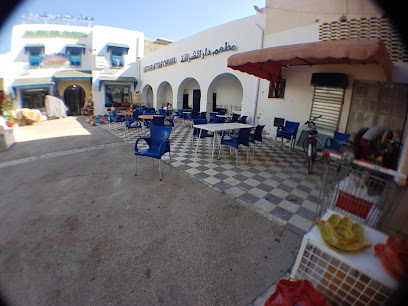
La Réserve
Experience delicious fast food in Monastir at La Réserve – where quick bites meet quality flavors!
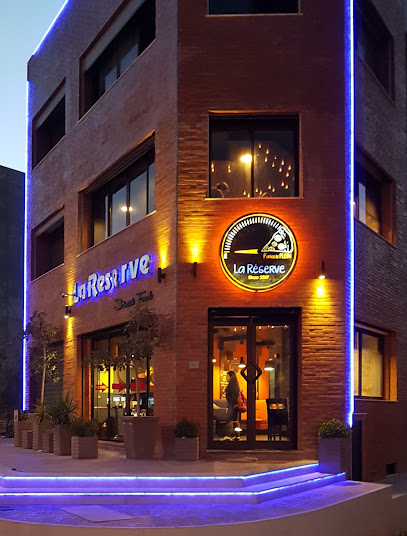
Guilty
Experience unique fast food flavors at Guilty in Monastir – where tradition meets modern taste in a vibrant setting.
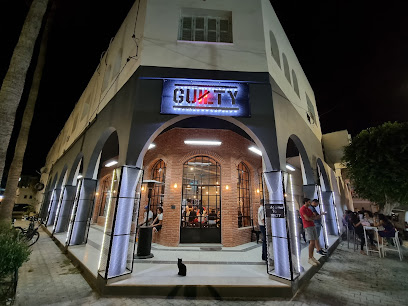
restaurant Marina The Captain
Experience authentic Tunisian cuisine with stunning marina views at Marina The Captain in Monastir.
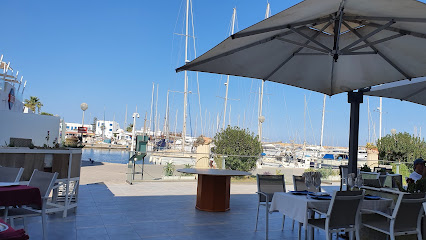
BIZZ'ART
Experience exquisite dining at BIZZ'ART in Monastir – where local flavors meet international flair.
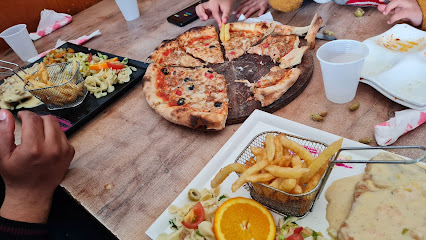
Mamma Chami
Experience authentic Lebanese flavors at Mamma Chami in Monastir—fast food redefined with traditional recipes and fresh ingredients.
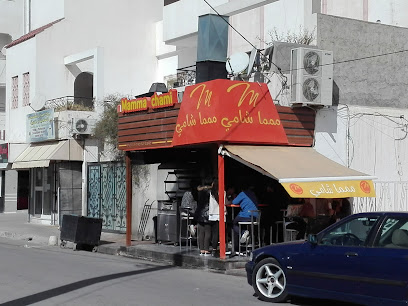
مطعم الفريق
Experience traditional Tunisian cuisine at El Ferik in Monastir—where history meets flavor in an unforgettable dining experience.
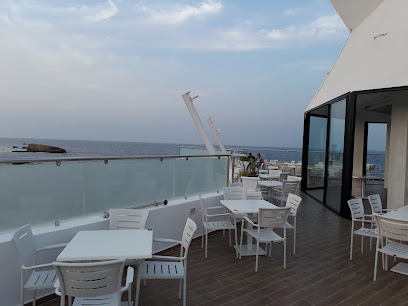
Soprano
Discover Soprano in Monastir – where authentic Italian pizza meets Tunisian charm for an unforgettable dining experience.
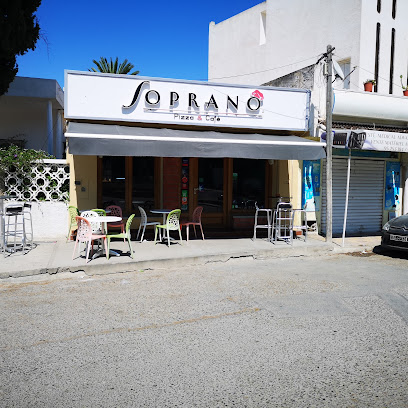
Resto My Cocoon
Experience the vibrant flavors of Tunisia at Resto My Cocoon in Monastir - where local cuisine meets international flair.
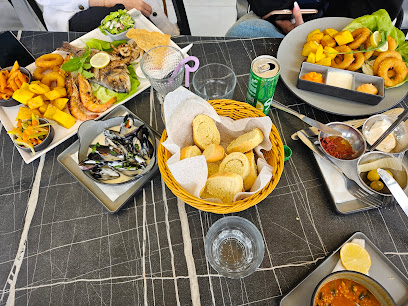
Palette Food
Discover Palette Food in Monastir - A Culinary Haven Blending Authentic Tunisian Flavors with Modern Cuisine.
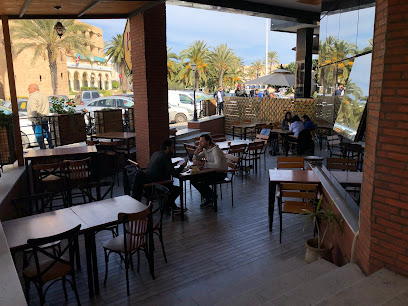
restaurant AL HAMBRA
Discover authentic Tunisian flavors at Al Hambra in Monastir – where culinary tradition meets modern dining.
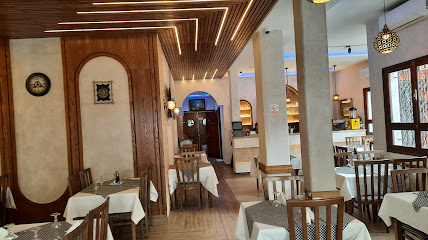
La Cucina
Experience authentic Italian cuisine at La Cucina in Monastir – where every meal feels like a trip to Italy!
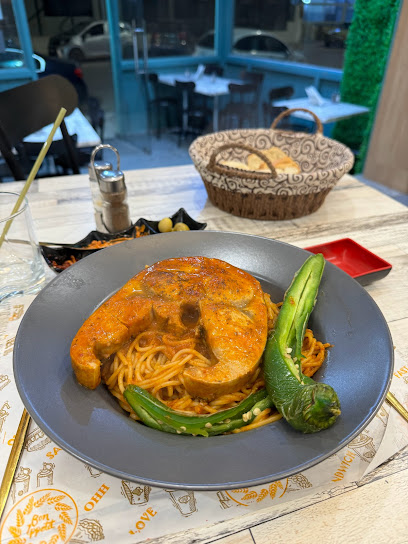
Markets, malls and hidden boutiques
MONASTIR MALL
Explore Monastir Mall, your ultimate shopping haven in Tunisia, where local charm meets international shopping experiences.
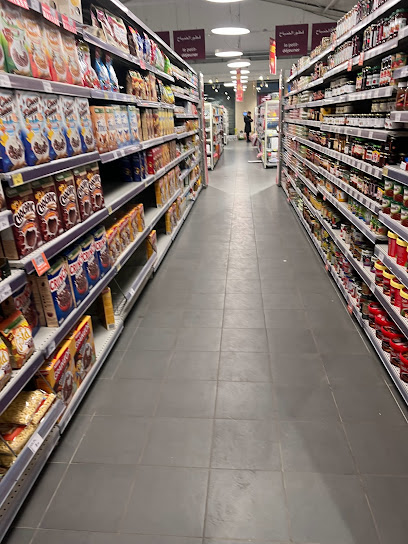
ijashop Tunisie
Discover Ijashop Tunisie - Your gateway to the latest electronics and technology in Monastir, Tunisia.

Monastir Medina
Explore Monastir Medina: A vibrant shopping mall blending local culture, diverse shops, and delicious Tunisian cuisine in Monastir.
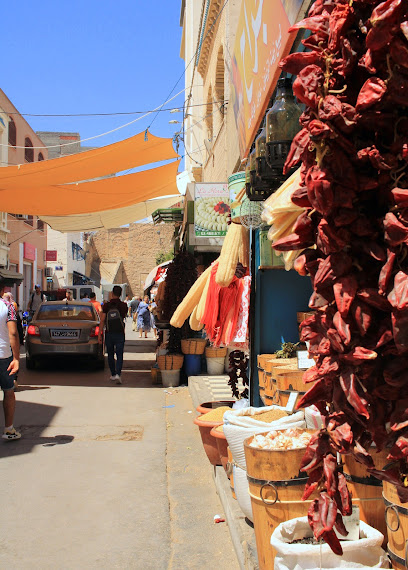
Monastir Market
Explore Monastir Market, a lively marketplace in Tunisia offering fresh produce, local crafts, and an authentic taste of Tunisian culture.
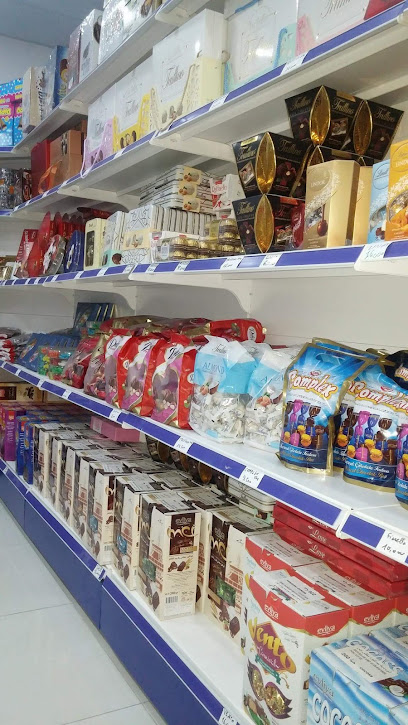
Chahrazed Centre
Explore the vibrant Chahrazed Centre in Monastir, where local crafts meet modern shopping in a unique experience for every traveler.
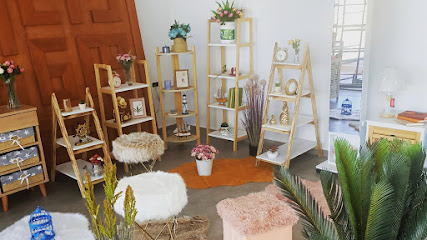
Hadhood Shop
Discover the bustling Hadhood Shop in Monastir, where shopping meets local culture in a vibrant atmosphere.
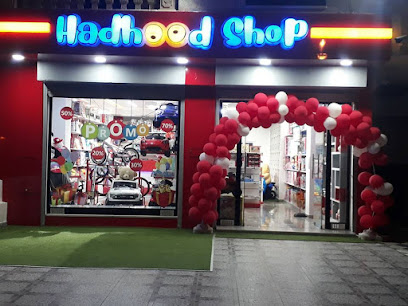
Boutique junior monastir
Explore the stylish offerings at Boutique Junior in Monastir, the go-to destination for contemporary men's fashion and tailored elegance.
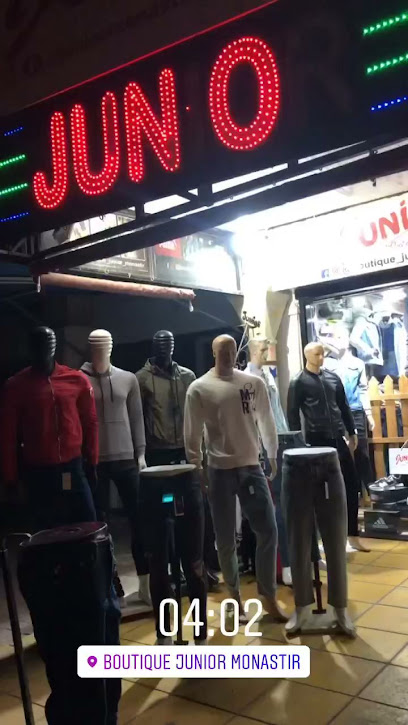
Dépôt belhajyoussef
Explore the vibrant consignment shop Dépôt Belhajyoussef in Monastir, where unique treasures and local culture await every visitor.
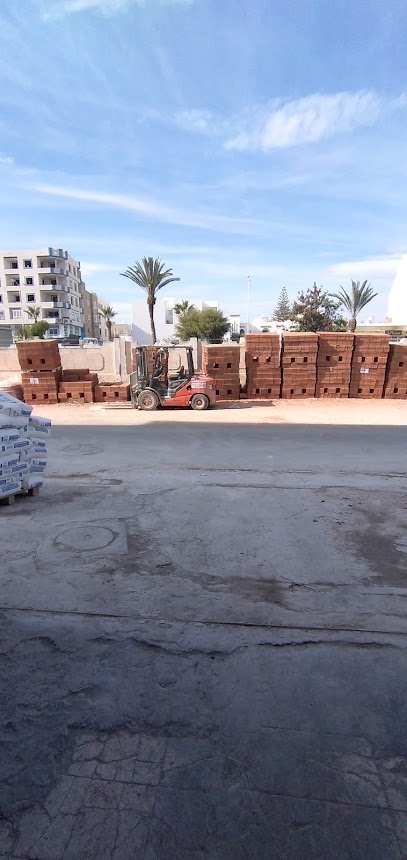
location vetements traditionnels
Immerse yourself in Monastir's culture through its traditional women's clothing, a perfect blend of heritage and style.
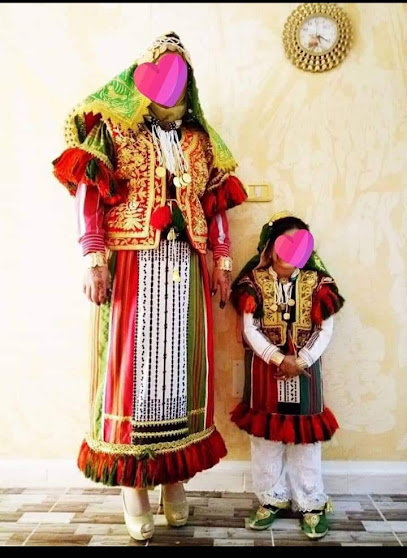
Altesse
Explore Altesse in Monastir for stylish women's clothing that reflects the latest trends and Tunisian flair, perfect for every occasion.
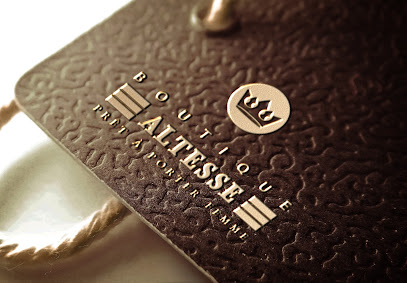
SABIÉ boutique
Discover unique fashion at SABIÉ Boutique in Monastir, where style meets local flair for an unforgettable shopping experience.
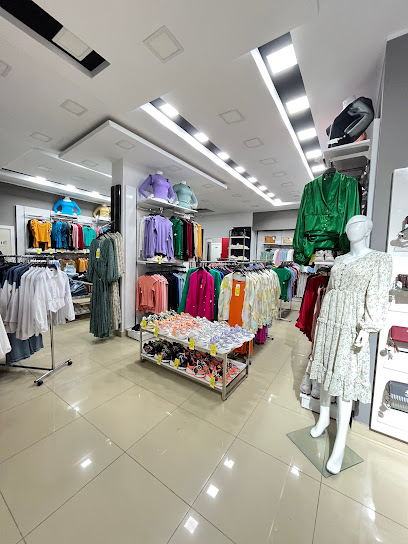
Mohammed’s Shopping Centre
Explore unique Tunisian gifts and souvenirs at Mohammed’s Shopping Centre in Monastir, a must-visit for every traveler.
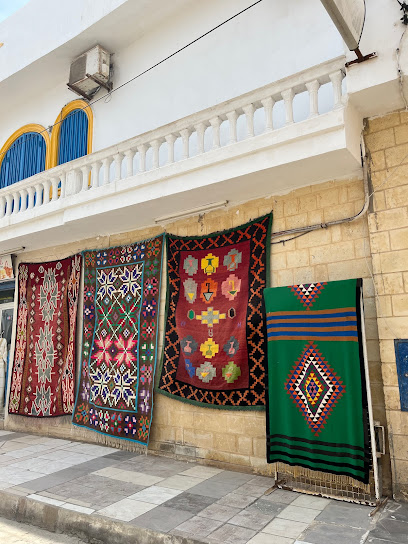
Africa Bazar
Discover unique Tunisian crafts and souvenirs at Africa Bazar, a charming gift shop in Monastir, perfect for tourists seeking local treasures.
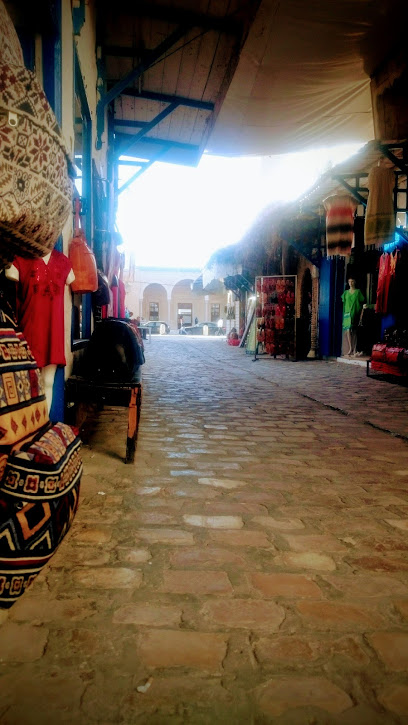
boutique
Explore Monastir's chic women's boutique for unique clothing reflecting contemporary Tunisian fashion and culture.

Rideaux nairi
Explore the dynamic Rideaux Nairi Shopping Mall in Monastir, where shopping, dining, and entertainment come together for an unforgettable experience.
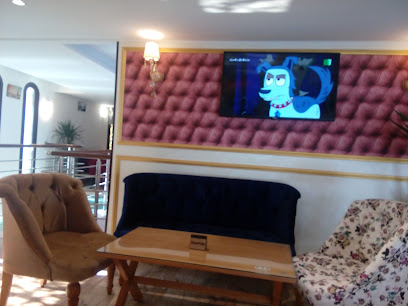
Essential bars & hidden hideouts
Restaurant le Pirate Monastir
Experience the best of Tunisian seafood cuisine at Restaurant le Pirate Monastir, where fresh catches meet stunning Mediterranean views.
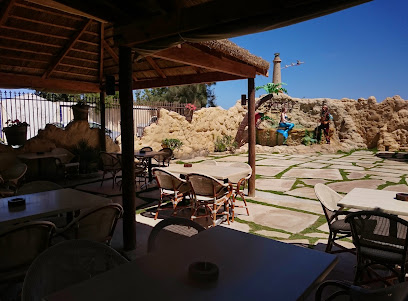
restaurant Marina The Captain
Experience the vibrant flavors of Monastir at Marina The Captain, a premier bar and restaurant with stunning marina views and a delightful menu.
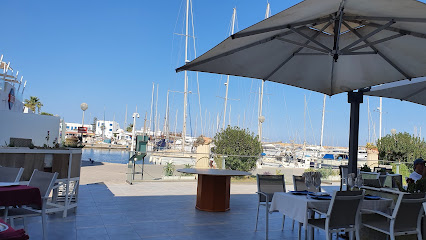
مطعم الفريق
Experience authentic Tunisian cuisine amidst the historical charm of Monastir at مطعم الفريق, where every dish tells a story.
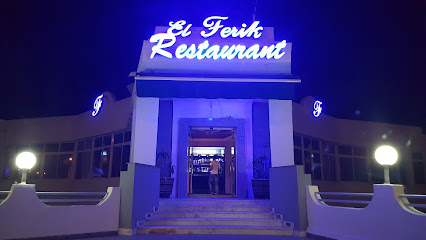
Resto My Cocoon
Discover the flavors of Tunisia at Resto My Cocoon, a culinary gem in Monastir, combining local ingredients with an inviting atmosphere.
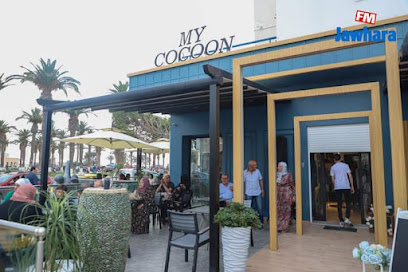
The Loft Coffee resto
Experience the vibrant café culture of Monastir at The Loft Coffee Resto, where delicious flavors and inviting ambiance await.
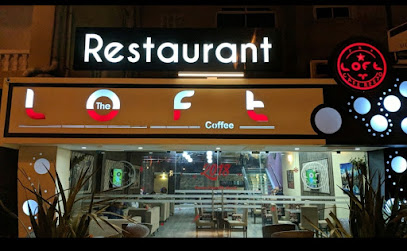
Darjeeling
Savor the authentic taste of Monastir at Darjeeling Restaurant, where every meal is a culinary journey through local flavors.
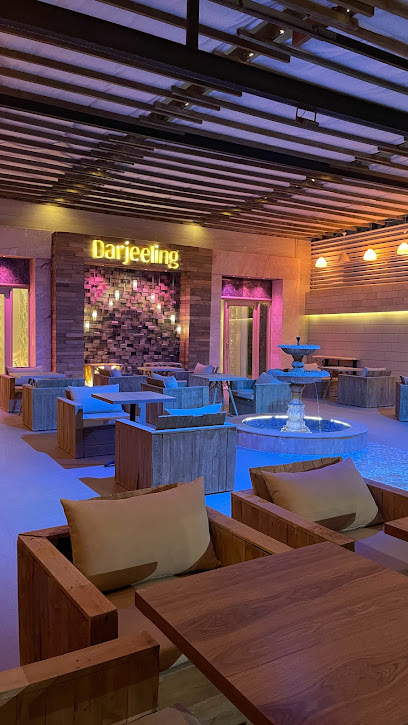
THE VIEW (La Palette Resto & Lounge)
Dine at The View (La Palette Resto & Lounge) for an unforgettable culinary experience with stunning coastal views in Monastir, Tunisia.
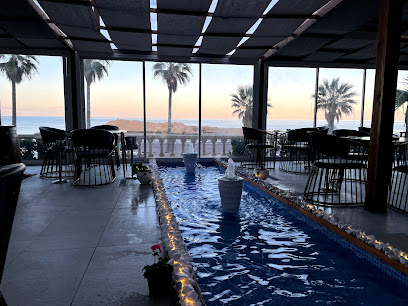
Cap Grill - Le Grill
Discover the essence of Mediterranean dining at Cap Grill - Le Grill, where grilled perfection meets a vibrant hookah experience in Monastir.
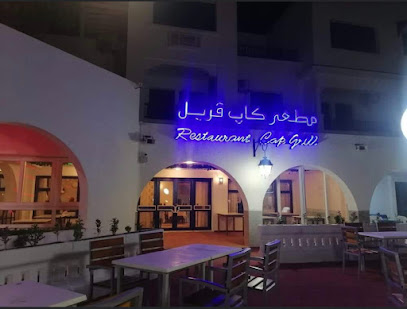
L'empreinte
Discover the chic ambiance of L'empreinte in Monastir, a perfect lounge for drinks and relaxation amidst the vibrant culture.
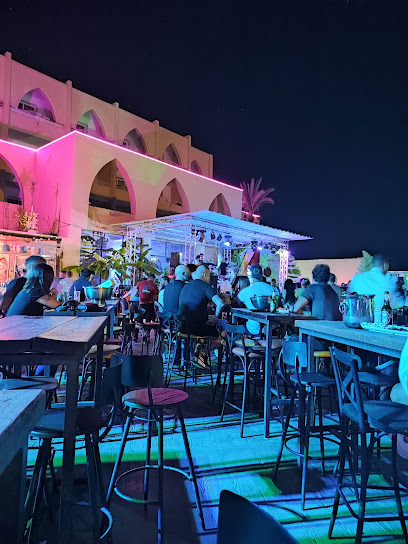
The Blues Café-Resto
Discover the culinary delights of The Blues Café-Resto in Monastir, where grilled specialties and a vibrant atmosphere await your palate.
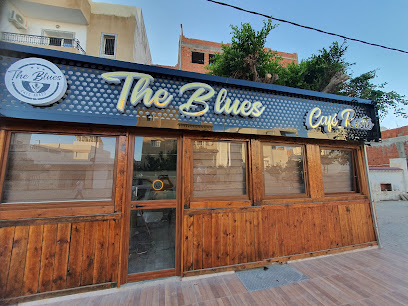
Blu Sky Coffee & Fresh Drinks
Discover Blu Sky Coffee & Fresh Drinks, Monastir's cozy cafe offering refreshing beverages and a welcoming atmosphere for tourists and locals alike.
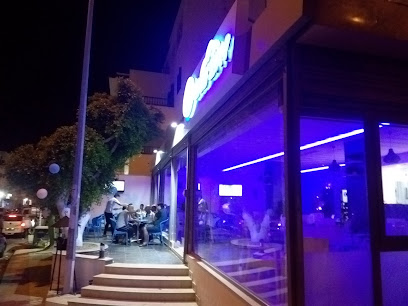
HYPE
Discover the lively bar scene at HYPE in Monastir, Tunisia, where modern cocktails and vibrant atmosphere await every visitor.
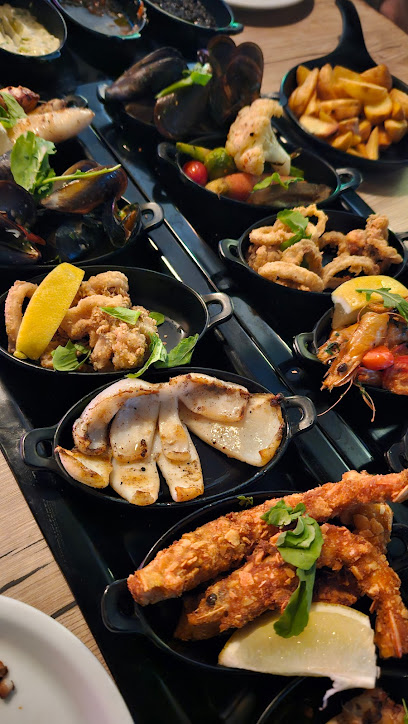
Palm's Disco
Experience the vibrant nightlife at Palm's Disco in Monastir, Tunisia - where the party never stops and memories are made.
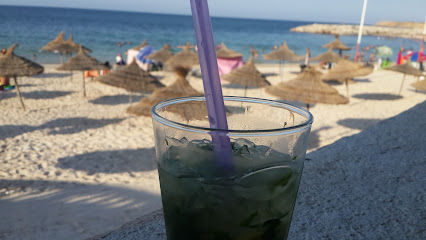
Tropical Bar
Embrace the vibrant nightlife of Monastir at Tropical Bar, where refreshing drinks meet a laid-back atmosphere in Tunisia's coastal gem.
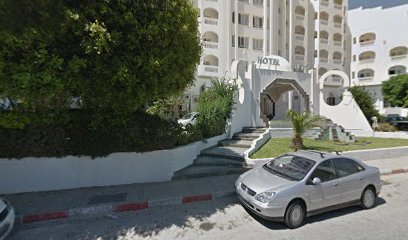
Local Phrases
-
- Helloمرحبا
[marhaba] - Goodbyeوداعا
[wadaa'an] - Yesنعم
[naam] - Noلا
[la] - Please/You're welcomeمن فضلك
[min fadlik] - Thank youشكرا
[shukran] - Excuse me/Sorryعذرا
[udhran] - How are you?كيف حالك؟
[kayfa haluk?] - Fine. And you?بخير. وأنت؟
[bikhayr. wa ant?] - Do you speak English?هل تتحدث الإنجليزية؟
[hal tatahadath al'injlizia?] - I don't understandأنا لا أفهم
[ana la afham]
- Helloمرحبا
-
- I'd like to see the menu, pleaseأريد أن أرى القائمة، من فضلك
[uriidu 'an 'ara alqaimah, min fadlik] - I don't eat meatأنا لا آكل اللحوم
[ana la aakul alluhum] - Cheers!صحتين
[sahhtayn] - I would like to pay, pleaseأود أن أدفع، من فضلك
[awadu 'an adfa', min fadlik]
- I'd like to see the menu, pleaseأريد أن أرى القائمة، من فضلك
-
- Help!النجدة!
[alnajdah!] - Go away!ارحل!
[arhul!] - Call the Police!اتصل بالشرطة!
[atasil bialshurta!] - Call a doctor!اتصل بطبيب!
[atasil bitalib!] - I'm lostلقد ضللت الطريق
[laqad dalalt altariq] - I'm illأنا مريض
[ana mariid]
- Help!النجدة!
-
- I'd like to buy...أريد أن أشتري...
[uriidu 'an ashtari...] - I'm just lookingأنا فقط أتفرج
[ana faqat atfarruj] - How much is it?كم ثمنه؟
[kam thamanuh?] - That's too expensiveهذا غالي جدا
[hatha ghali jiddan] - Can you lower the price?هل يمكنك تخفيض السعر؟
[hal yumkinuka takhfid alsu'ur?]
- I'd like to buy...أريد أن أشتري...
-
- What time is it?كم الساعة؟
[kam alsaa'ah?] - It's one o'clockالساعة الواحدة
[alsaa'ah alwahidah] - Half past (10)الساعة العاشرة والنصف
[alsaa'ah al'ashirah walnisf] - Morningصباح الخير
[sabah alkhayr] - Afternoonبعد الظهر
[ba'd althuhr] - Eveningمساء الخير
[masa' alkhayr] - Yesterdayأمس
[ams] - Todayاليوم
[alyawm] - Tomorrowغدا
[ghadan] - 1واحد
[wahid] - 2اثنان
[ithnan] - 3ثلاثة
[thalatha] - 4أربعة
[arba'a] - 5خمسة
[khamsa] - 6ستة
[sitta] - 7سبعة
[sab'a] - 8ثمانية
[thamaniah] - 9تسعة
[tis'ah] - 10عشرة
[asharah]
- What time is it?كم الساعة؟
-
- Where's a/the...?أين...؟
[ayn...?] - What's the address?ما هو العنوان؟
[ma huwa al'anaan?] - Can you show me (on the map)?هل يمكنك أن تريني (على الخريطة)؟
[hal yumkinuka an tureeni (ala alkhuraytah)?] - When's the next (bus)?متى يأتي الحافلة القادمة؟
[mata yaati alhafilat alqadimah?] - A ticket (to ....)تذكرة (إلى ...)
[tadhkarah (ila ...)]
- Where's a/the...?أين...؟
History of Monastir
-
Monastir, originally known as Ruspina, was founded by the Phoenicians around the 4th century BCE. Situated on Tunisia's central coast, it served as a significant trading post. The city's strategic location made it a bustling center for maritime trade and cultural exchanges between various Mediterranean civilizations.
-
During the Roman era, Monastir flourished as a crucial part of the Roman province of Africa Proconsularis. The city was fortified and saw the construction of many public buildings, including baths, forums, and amphitheaters. The region thrived under Roman rule, becoming an important administrative and commercial hub.
-
Monastir's significance grew with the advent of Islam in the 7th century. The city was transformed into a ribat (fortified monastery) to defend against Byzantine and Christian incursions. The Ribat of Monastir, constructed in 796 CE by the Abbasid governor Harthama ibn A'yan, remains one of the most well-preserved ribats in North Africa and a testament to the city's historical military importance.
-
The Ottoman Empire took control of Monastir in the 16th century, and the city became part of the Ottoman Beylik of Tunis. During this period, Monastir experienced significant architectural and cultural developments, with the construction of mosques, madrasas, and other public buildings. The city also served as a base for naval operations in the Mediterranean.
-
In 1881, Tunisia, including Monastir, fell under French colonial rule. The French Protectorate period brought modernization to the city, with the introduction of new infrastructure, education systems, and administrative reforms. Monastir's port was expanded, further boosting its economic significance.
-
Tunisia gained independence from France in 1956, and Monastir played a pivotal role in the country's post-independence development. The city is the birthplace of Habib Bourguiba, the first President of Tunisia, who initiated numerous social and economic reforms. Monastir has since developed into a popular tourist destination, renowned for its historical sites, beautiful beaches, and vibrant culture.
-
Monastir's rich cultural heritage is reflected in its numerous historical landmarks and traditions. The city hosts various festivals, such as the International Festival of Monastir, celebrating local music, dance, and crafts. The Medina of Monastir, with its narrow alleys and traditional markets, offers a glimpse into the city's storied past and vibrant present.
Monastir Essentials
-
Monastir is located on the central coast of Tunisia. The nearest international airport is Monastir Habib Bourguiba International Airport (MIR), which is just a few kilometers from the city center. The airport has regular flights from major European cities. Alternatively, you can fly into Tunis-Carthage International Airport (TUN) and take a train or bus to Monastir, a journey that takes approximately 2 hours by road.
-
Monastir offers various transportation options including taxis, buses, and trains. Taxis are a convenient and relatively inexpensive way to get around the city. The local bus system connects Monastir to other cities in Tunisia, and the train service is also efficient for longer distances. Car rentals are available at the airport and in the city for those who prefer to drive.
-
The official currency in Tunisia is the Tunisian Dinar (TND). Credit cards are widely accepted in hotels, restaurants, and larger shops, but it is advisable to carry cash for smaller establishments and markets. ATMs are readily available throughout Monastir for cash withdrawals.
-
Monastir is generally a safe destination for tourists, but it is important to take standard precautions. Avoid poorly lit areas at night and be mindful of your belongings in crowded places. While Monastir does not have specific high-crime areas targeting tourists, it is always best to stay vigilant.
-
In case of emergency, dial 197 for police assistance or 190 for medical emergencies. Monastir has several hospitals and clinics that provide medical services. It is advisable to have travel insurance that covers medical emergencies. Pharmacies are available for minor health issues and over-the-counter medications.
-
Fashion: Do dress modestly, especially when visiting religious sites. Avoid wearing revealing clothing. Religion: Do respect local customs and traditions. Remove your shoes when entering mosques. Public Transport: Do be respectful and offer your seat to elderly passengers. Don't eat or drink on public transport. Greetings: Do greet people with a handshake. Men should wait for women to extend their hand first. Eating & Drinking: Do try local dishes and accept food offerings graciously. Don't eat or drink in public during Ramadan.
-
To experience Monastir like a local, visit the local markets (souks) where you can purchase fresh produce and traditional Tunisian goods. Engage with locals, who are often friendly and willing to share stories about their culture. Don’t miss visiting the Ribat of Monastir, a historical fortress with stunning views of the Mediterranean. For a unique experience, take a walk along the Corniche, a waterfront promenade that is popular with locals.
Trending Landmark in Monastir
-
Ribat
-
Mausoleum of Habib Bourguiba
-
Bourguiba Mosque
-
Marina Cap Monastir
-
Presidential Palace of Bourguiba
-
Spring Land/ Adem Park
-
Dar Benti
-
Statue Of The President of The Republic of Tunisia Habib Bourguiba تمثال لرئيس الجمهورية التونسية الحبيب بورقيبة
-
Habib Bourguiba Museum
-
Port
-
Roman Ruins of Monastir
-
Ribat Sidi Dhouib
-
دار الشرع مقر جمعية صيانة مدينة المنستير
-
Bab Brikcha
-
Place 3 Aout
Nearby Cities to Monastir
-
Things To Do in Sousse
-
Things To Do in Hammamet
-
Things To Do in Sfax
-
Things To Do in Tunis
-
Things To Do in Bizerte
-
Things To Do in Djerba
-
Things To Do in Annaba
-
Things To Do in Xlendi
-
Things To Do in Gozo
-
Things To Do in Marsalforn
-
Things To Do in Xewkija
-
Things To Do in Xaghra
-
Things To Do in Tozeur
-
Things To Do in Mellieha
-
Things To Do in Mgarr










